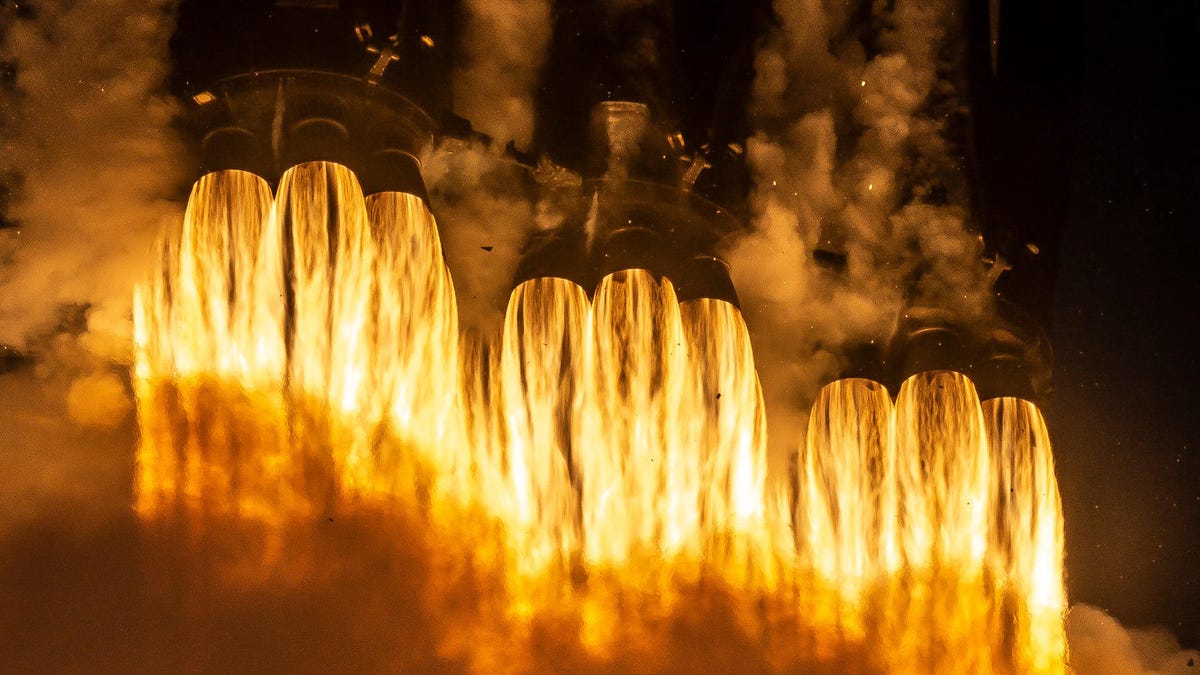SpaceX Falcon Heavy core rocket lost after toppling in transit
After sticking the landing for the first time, SpaceX's center core booster is felled by an Atlantic swell.

On the second flight of the Falcon Heavy last Thursday, SpaceX rocketed into history. For the first time, it nailed the landing of all three rocket boosters, including the center core, which calmly positioned itself on the Of Course I Still Love You droneship stationed in the Atlantic Ocean.
However, the return journey for the core was a little more brutal than expected. The center core toppled over in transit due to "8- to 10-foot swells" and was ultimately lost to the Atlantic, according to a report by The Verge.
"Due to rough sea conditions, SpaceX's recovery team was unable to secure the center core booster for its return trip to Port Canaveral." Elon Musk's spaceflight company told The Verge. "The safety of our team always takes precedence."
The Falcon Heavy's center core is a modified version of the nine-engine Falcon 9 booster rocket. When a Falcon 9 lands on the droneship, it's attached and stabilized by a device known as the 'octagrabber' that grabs on to the rocket to keep it upright. Falcon Heavy's core doesn't have the same setup so it could not be nailed down. A satirical Twitter account set up for the Octagrabber jokingly remarked it had "nothing to do" with the loss.
The SpaceX droneship is currently on its way back from the Atlantic.
SpaceX doesn't expect future missions to be affected by the core's loss. Falcon Heavy is set to fly again later this year, carrying payloads for the Department of Defence, NASA and the Planetary Society.
SpaceX didn't immediately respond to a request for comment.
Originally published April 16
Updated April 22: Clarifies toppling

